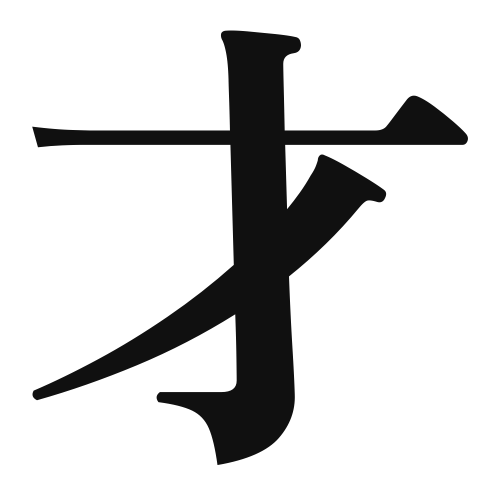1. Overview of Meaning
The kanji “才” (sai) primarily means “talent” or “ability.” It is often used to refer to someone’s skill or natural aptitude in a particular area.
2. Formation and Radical
The kanji “才” is classified as a phonetic character (形声文字) because it combines a meaning component with a phonetic component. The left side of the character is a radical that suggests its meaning, while the right side indicates its pronunciation.
The radical for “才” is 木 (tree), which is often associated with growth and development, reflecting the idea of nurturing talent.
3. Examples of Usage
Common words and phrases that include “才” are:
- 才能 (sainou) – talent
- 才女 (sainyo) – talented woman
- 才覚 (saikaku) – ingenuity
Example sentences in daily conversation:
- 彼は音楽の才能があります。 (Kare wa ongaku no sainou ga arimasu.) – He has a talent for music.
- 彼女は非常に才女です。 (Kanojo wa hijou ni sainyo desu.) – She is an exceptionally talented woman.
4. Synonyms and Antonyms
Similar kanji with related meanings include:
- 技 (gi) – skill, which emphasizes the learned aspect of ability.
- 才能 (sainou) – talent, which refers to natural ability.
Antonyms include:
- 無能 (munou) – incompetence, which indicates a lack of ability.
5. Cultural and Historical Background
The kanji “才” is deeply rooted in Japanese culture, often associated with the appreciation of individual talents and skills. It appears in various proverbs and idiomatic expressions, such as:
- 才能は努力で磨かれる (Sainou wa doryoku de migakareru) – Talent is polished through effort.
This reflects the cultural belief that while talent is important, hard work and dedication are essential for success.
